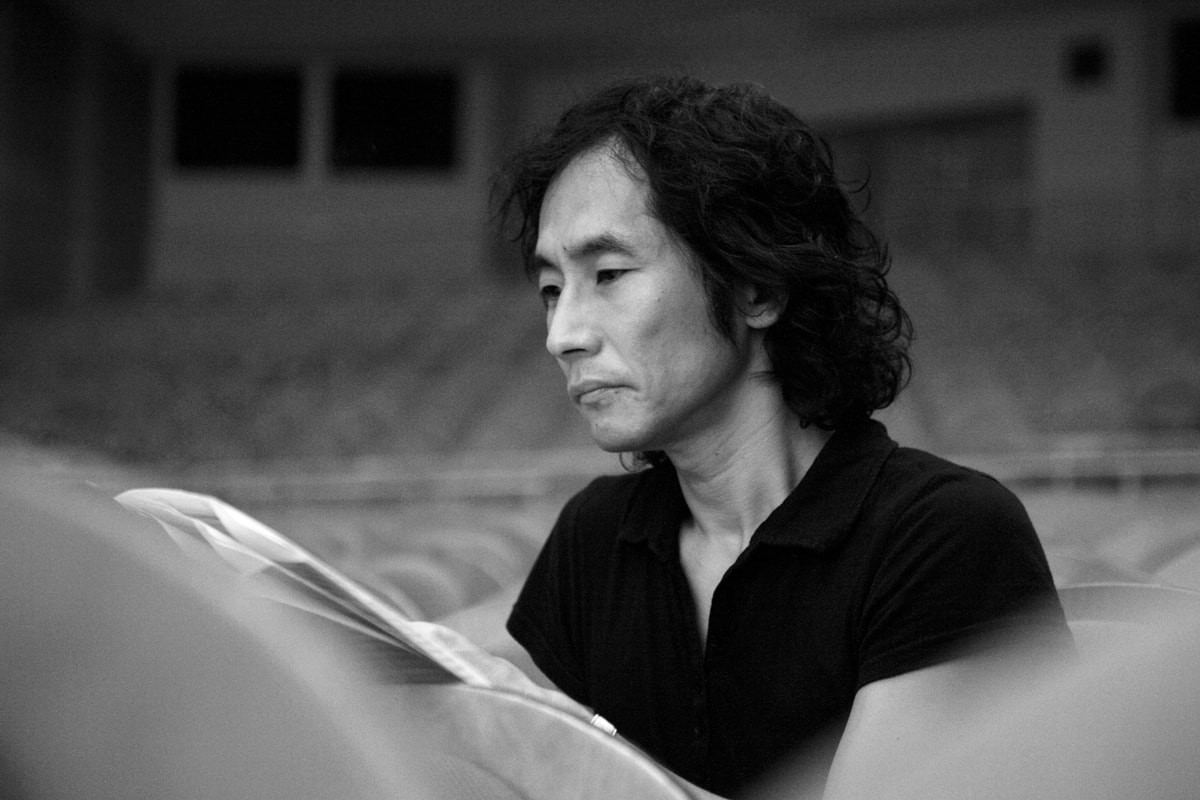Biography

1965年、東京に生まれる。桐朋学園大学で作曲を学んだのち、1990年から92年までDAAD奨学生としてフライブルク音楽大学に留学。1992年から93年まで、文化庁芸術家在外研修員としてパリに滞在し、95年までフランス国立音響音楽研究所(IRCAM)で、コンピュータ音楽を研究する。作曲を末吉保雄、クラウス・フーバー、サルヴァトーレ・シャリーノに、コンピュータ音楽をフィリップ・マヌリに、オルガンをジグモント・サットマリーに師事。
ローマのブッキ国際作曲コンクール第1位(1991)、ワルシャワのセロツキ記念国際作曲家コンペティション第2位(1992)、芥川作曲賞(1996)をはじめ、アムステルダムのガウデアムス国際音楽週間(1992)やISCM世界音楽の日々(2001)での入選、芸術選奨文部科学大臣新人賞(2002)など、国内外で数多くの賞を受賞。 ノイズ・ミュージックのMERZBOWをはじめ、世界的振付家リン・フアイミン(林懐民)率いる台湾のクラウド・ゲイト・ダンス・シアター(雲門舞集)、ヴィデオ・アーティストの兼古昭彦、ダンサー・振付家の金森穣など、他分野における第一人者とのコラボレーションも多い。
1995年から5年間、渋谷ジァンジァンで、シリーズ「東京20世紀末音楽集団 → 2001」、1997年から99年まで神奈川県立音楽堂で、「権代敦彦シリーズ・21世紀への音楽」を企画制作。1995年および99年には、東京カテドラルで自身の個展をプロデュース。2004年には、サントリー音楽財団のコンサート・シリーズ「トランス・ミュージック〜対話する作曲家」の特集作曲家として、兼古昭彦とともに企画を手がけた。2003年、アーティスト・イン・レジデンスとしてノルウェーのベルゲンに滞在。2004年から2005年まで、オーケストラ・アンサンブル金沢のコンポーザー・イン・レジデンス。
2007年、仙台フィルハーモニー管弦楽団委嘱による《ジャペータ —葬送の音楽 I—》初演、好評を博す。2010年3月、ロンドンのロイヤル・フェスティバル・ホールにおけるフィルハーモニア管弦楽団のコンサート・シリーズ「ミュージック・オヴ・トゥディ(MoT)」特集作曲家。同年、サイトウ・キネン・フェスティバル松本とカーネギーホールの共同委嘱による《デカセクシス》が、9月に松本で開催された同フェスティバルで、また12月にはカーネギーホールにおいて、下野竜也指揮サイトウ・キネン・オーケストラによって初演され、成功を収めた。
2013年、サントリー芸術財団「作曲家の個展2013─権代敦彦」のテーマ作曲家として特集され、同財団委嘱によるオルガンとオーケストラのための《デッド・エンド》初演。2014年、NHK交響楽団「Music Tomorrow 2014」において、同楽団委嘱による《ユートピア ―どこにもない場所―》初演。2015年3月、東京芸術劇場委嘱による初の吹奏楽作品《Time No Longer ―もはや時がない―》初演。7月、オーケストラ・アンサンブル金沢委嘱による《Vice Versa ―逆も真なり―》初演。11月、フランクフルト放送交響楽団委嘱による《終わりへ向かって落ちる時間》初演。2016年、《Vice Versa ―逆も真なり―》で第64回尾高賞を受賞した。
2014年1月、初のオペラ《桜の記憶》(2013)の世界初演が、リトアニアの国立カウナス・ドラマ・シアターで行われた。第二次世界大戦中のカウナス領事館で多くのユダヤ人の命を救った外交官、杉原千畝を題材としたこのオペラは、連日スタンディング・オベーションで迎えられ、リトアニア国営放送で生中継されるなど大きな注目を集めた。
近年は、「有限の生命、有限の音楽」における「死と永遠、無限」との関係を創作の中心主題に据え、カトリック信仰に基づきつつも、独自の宗教死生観による音楽時間の創出を試みている。カトリック教会オルガニストとしても活動。
(2016年12月9日)
Atsuhiko Gondai was born in 1965 in Tokyo. He studied composition at Toho Gakuen School of Music, and from 1990 to 1992 attended the Staatliche Hochschule für Musik Freiburg as a DAAD scholar. From 1993 to 1994 he was resident in Paris as a researcher in the Japanese Government Overseas Study Program for Artists, and until 1995 studied computer music at the Institut de Recherche et de Coordination Acoustique/Musique (IRCAM). He studied composition with Yasuo Sueyoshi, Klaus Huber and Salvatore Sciarrino, computer music with Philippe Manoury, and organ with Zsigmond Szathmary.
In addition to taking 1st place in the 1991 Valentino Bucchi Composition Competition, 2nd place in the 1992 International Composer’s Competition “Kazimierz Serocki,” and receiving the Akutagawa Composition Prize in 1996, he was selected for the 1992 International Gaudeamus Music Week in Amsterdam and the 2001 ISCM World Music Days in Yokohama, and has been awarded numerous other prizes at home and abroad.
From 1995 to 1999, he has produced the concert series for the contemporary music and for his own works in Tokyo and Yokohama. In 2004, he has organized “Transmusic Concert series in Osaka No. 2” by Suntory Foundation for Arts, as the theme composer, with Video artist Akihiko Kaneko as the special guest. Additionally, he stayed in Bergen, Norway as an Artist in Residence in 2003 and served as the Composer-in-Residence at Orchestra Ensemble Kanazawa from 2004 to 2005.
In 2007, jhapetā –funeral music–, commissioned by Sendai Philharmonic Orchestra, was premiered and earned a good reputation. In 2010, he was featured in some of the innovative concert series for contemporary music, such as “Music of Today (MoT)“ presented by Philharmonia Orchestra at Royal Festival Hall in March, and Decathexis, co-commissioned by Saito Kinen Festival Matsumoto and Carnegie Hall, was premiered in Matsumoto as part of the festival in September and at Carnegie Hall in December by Saito Kinen Orchestra conducted by Tatsuya Shimono.
In October 2013, he was featured “A Profile of A Composer“ presented by Suntory Foundation of Arts, whose program included the premiere of Dead End for organ and orchestra. In 2014, Utopia –nowhere–, commissioned by NHK Symphony Orchestra, was premiered at “Music Tomorrow 2014“ presented by the Orchestra. In 2015, his first wind orchestra piece Time No Longer, commissioned by Tokyo Metropolitan Theatre, was premiered in March, Vice Versa, commissioned by Orchestra Ensemble Kanazawa and Falling Time to the End, commissioned by Frankfurt Radio Symphony, were premiered respectively in July and in November with great success. He was awarded the 64th Otaka Prize for Vice Versa in 2016.
In January 2014, his first opera Sakurų Prisiminimai was premiered at Kaunas State Drama Theatre in Lithuania. The opera which describes Chiune Sugihara, who was a Japanese diplomat worked in Lithuania and saved a lot of Jews during World War II by helping them leave the country, attracted considerable attention. It was broadcast live by LRT (Lithuanian National Radio and Television) and received a standing ovation for every performance.
He has engaged in many collaborative projects with filmmakers, dancers, choreographers and architects, such as MERZBOW (noise music), Cloud Gate Dance Theatre of Taiwan directed by Lin Hwai-min, Akihiko Kaneko (video artist) and Jo Kanamori (dancer, choreographer).
In recent years, the relationship between “death, eternity, and infinity” and “limited life, and limited music” has been set as his central theme, and though based on Catholicism, he attempts to create musical time through his own unique religious view on life and death. He also serves as an organist at the Catholic Church in Tokyo.
(as of 9 December 2016)